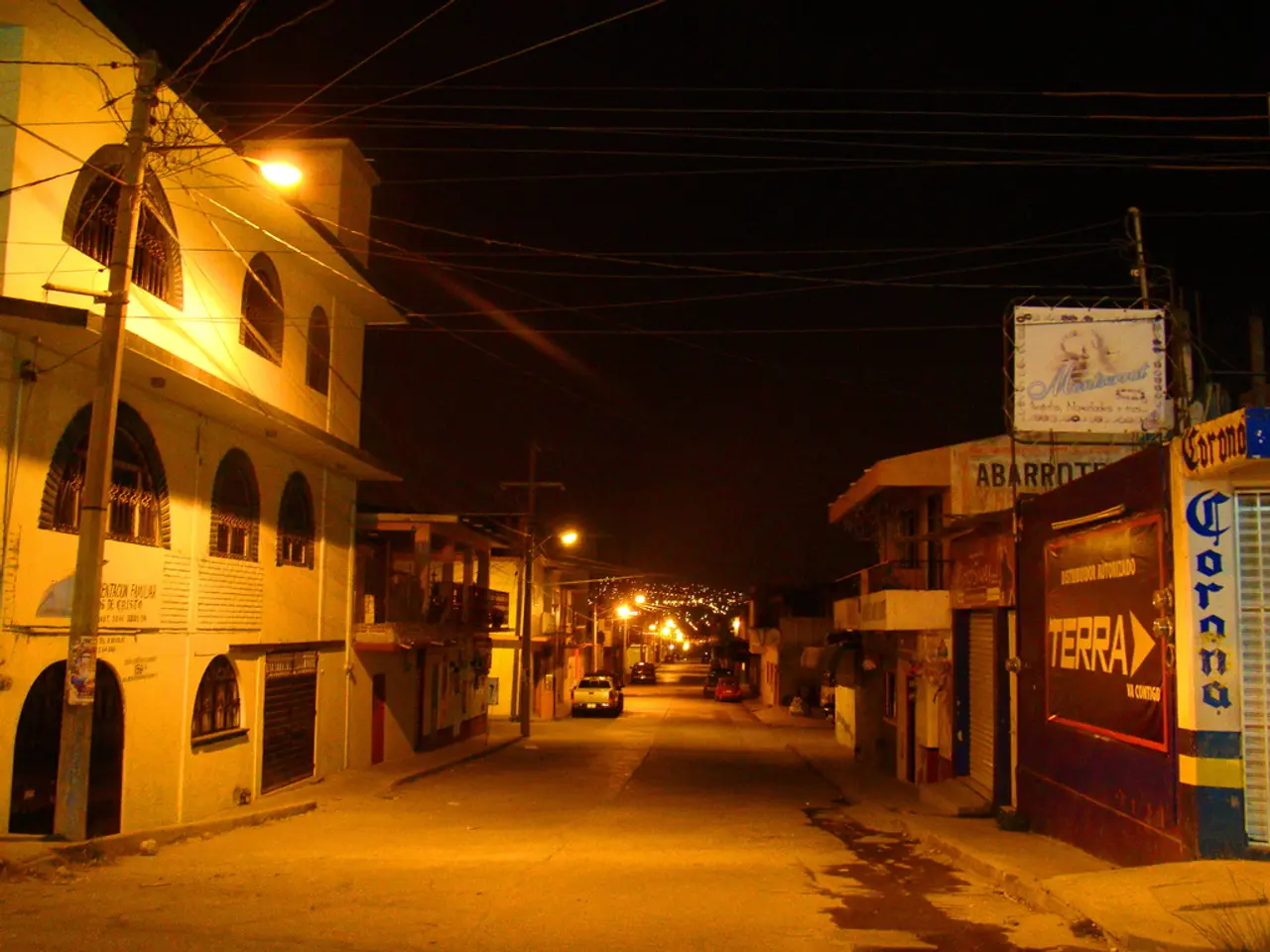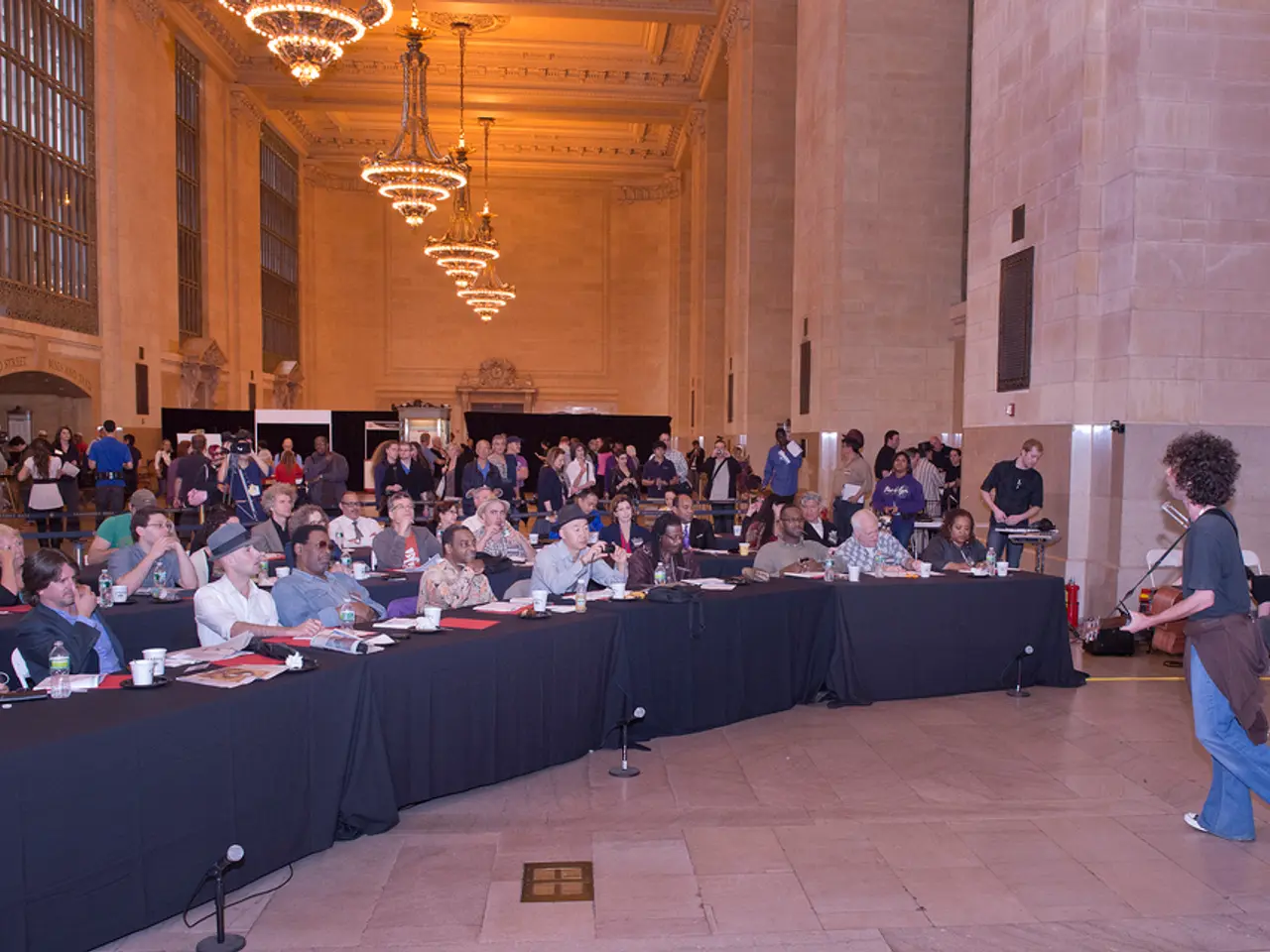Food Industry Energy Locations: Developing Sustainable Energy Policies for the Food Sector
In the face of increasing challenges, the energy-intensive food industry in Germany is calling for more public and political visibility to address upcoming issues more effectively. With around 644,000 employees and an annual turnover of approximately 500 billion euros, the industry is the fourth largest in the country [1].
The food industry is under immense pressure due to rising energy prices, complex regulatory requirements, and international competitive distortions. To navigate these challenges, a comprehensive political framework is required to secure the industry's competitiveness while balancing climate protection and economic resilience.
**Regulatory Framework**
Ensuring fair competition is vital, with the Bundeskartellamt's efforts to maintain open markets focusing on monitoring large corporations and supporting small-scale producers [2][3]. Climate legislation should incentivize sustainable practices without overburdening industries, as Germany works towards its climate goals, such as reducing carbon emissions [4].
**Energy and Climate Policies**
Encouraging the use of renewable energy sources can help mitigate climate-related challenges and energy costs. Carbon pricing mechanisms can motivate sustainable practices while ensuring competitiveness by providing relief or offsets for industries facing global market pressures [4].
**Economic Support and Innovation**
Support for research and development in sustainable food production and processing technologies is essential to enhance efficiency and reduce environmental impact [4]. Tax incentives or subsidies can encourage investment in sustainable food production and processing, helping the industry adapt to climate challenges [4].
**Market Access and Trade Policies**
Negotiating trade agreements that maintain access to global markets while ensuring fair conditions for domestic producers is crucial. Transparency in supply chains can boost demand for environmentally friendly options by enabling consumers to make informed choices [2][3].
**Workforce Development and Employment**
Developing training programs focused on sustainable practices and new technologies can enhance workforce skills and adaptability in a changing market [4]. Encouraging stable employment through supportive policies and incentives can help maintain the food industry's significant employment contributions [4].
Jaana K. Kleinschmit von Lengefeld, president of the OVID association of the oilseed processing industry in Germany, emphasized the need for carbon leakage protection to prevent the relocation of industry abroad [1]. She also advocated for establishing a binding carbon leakage protection in the EU ETS [1]. To secure the attractiveness of the German location, long-term predictable investment conditions are necessary [1].
The energy-intensive food industry is dominated by small and medium-sized enterprises, with 90% of German food industry companies belonging to the Mittelstand [1]. Grid fees and insufficient grid connection capacities were identified as barriers to flexibilization in the energy-intensive food industry [1]. To secure the production location in Germany, a competitive gas supply must also be guaranteed [1].
With the presentation of the study "The Flexibilization Potential of the Energy-Intensive Food Industry," focusing on the challenges of transformation, Dr. Christian von Boetticher, chairman of the Federal Association of the German Food Industry (BVE), called for stronger institutional integration with the Federal Ministry of Economics and Energy to represent the industry's interests in a structured and effective manner in the future [1].
References: [1] BVE (2021). Pressemitteilung: "Die Energieintensive Nahrungsmittelindustrie macht sich für eine stärkere institutionelle Integration mit dem Bundesministerium für Wirtschaft und Energie für den zukünftigen Austausch". Retrieved from https://www.bve.de/de/presse/pressemitteilungen/1029-die-energieintensive-nahrungsmittelindustrie-macht-sich-fuer-eine-starkere-institutionelle-integration-mit-dem-bundesministerium-fuer-wirtschaft-und-energie-fuer-den-zukunftigen-austausch [2] BVE (2021). Pressemitteilung: "Die Nahrungsmittelindustrie fordert Transparenz in den Lieferketten". Retrieved from https://www.bve.de/de/presse/pressemitteilungen/1031-die-nahrungsmittelindustrie-fordert-transparenz-in-den-lieferketten [3] Bundeskartellamt (2021). Pressemitteilung: "Bundeskartellamt verhängt Bußgeldbescheide gegen große Unternehmen im Nahrungsmittelsektor". Retrieved from https://www.bundeskartellamt.de/DE/Presse/Pressemitteilungen/2021/pm_210520_nahrungsmittel.html [4] BVE (2021). Pressemitteilung: "Die Nahrungsmittelindustrie fordert stärkere Unterstützung für die Umweltverträglichkeit der Produktion". Retrieved from https://www.bve.de/de/presse/pressemitteilungen/1030-die-nahrungsmittelindustrie-fordert-starkere-unterstuetzung-fuer-die-umweltvertraeglichkeit-der-produktion [5] BMWi (2021). Pressemitteilung: "Bundesminister Altmaier: "Wir setzen die Transformation der Nahrungsmittelindustrie in Deutschland voran"". Retrieved from https://www.bmwi.de/Redaktion/DE/Pressemitteilungen/2021/2021-06-25-transformation-der-nahrungsmittelindustrie-in-deutschland.html
The energy-intensive food industry in Germany, as it navigates rising energy prices, complex regulatory requirements, and international competitive distortions, could benefit from boosting public and political visibility, similar to the sports industry's efforts to ensure a level playing field. A comprehensive political framework, supporting fair competition, climate legislation, and the adoption of sustainable practices, would be advantageous to securing the industry's competitiveness while balancing climate protection and economic resilience.








